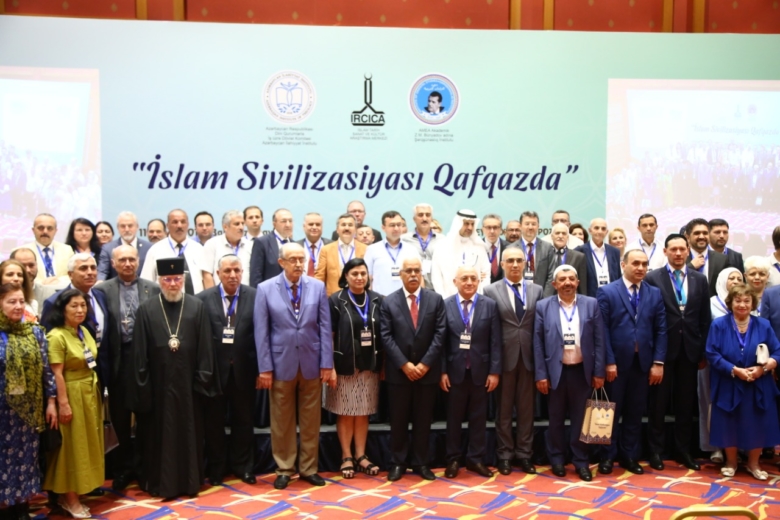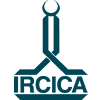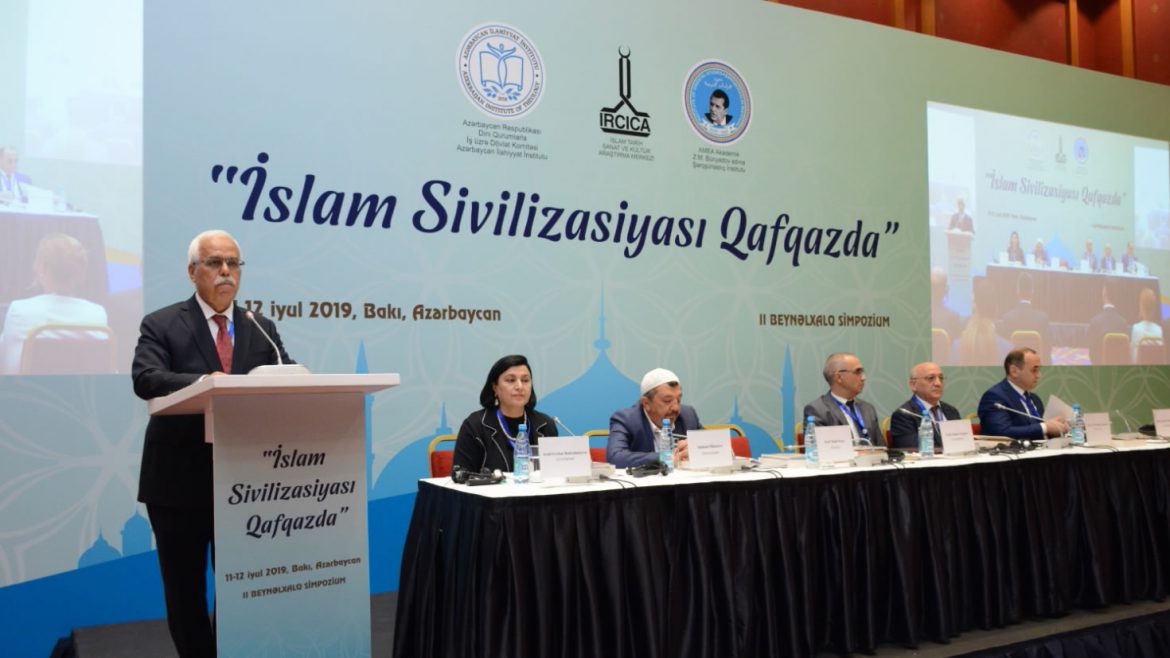An international symposium on “Islamic Civilization in Caucasia” has been organized by IRCICA jointly with Azerbaijan Institute of Theology under the State Committee of Religious Associations and the Institute of Oriental Studies named after academician Z. M. Bunyadov of Azerbaijan National Academy of Sciences (anas), in Baku, on 11-13 July 2019. This was the second symposium on this theme: the first symposium was held on 9-11 December 1998, under the patronage and in the presence of President Heydar Aliyev.
The symposium participants started their program by paying a courtesy visit to the Azerbaijan Institute of Theology on 10 July. The symposium started on 11 July with a collective visit to the mausoleums of Heydar Aliyev, the Founding President of the Republic of Azerbaijan, in the Alley of Honor, and other martyrs of Azerbaijan in the Alley of Martyrs.
Prof. Dr. Jeyhun Mammadov, Rector of the Azerbaijan Institute of Theology, IRCICA Director General Prof. Dr. Halit Eren, and Dr. Govhar Bakhshaliyeva, Member of Parliament and Director of the Institute of Oriental Studies named after academician Z. M. Bunyadov of anas placed wreaths to the mausoleums.
The opening ceremony of the symposium was addressed by Prof. Jeyhun Mammadov, Rector of the Azerbaijan Institute of Theology, IRCICA Director General Prof. Halit Eren, and Dr. Govhar Bakhshaliyeva, Member of Parliament and the Director of the Institute of Oriental Studies named after academician Z. M. Bunyadov of anas. In his speech, Prof. Mammadov outlined the development trajectory of Islamic studies in Azerbaijan. Prof. Dr. Halit Eren underlined various contributions of IRCICA to the study of Islamic history and civilization in Caucasia and stressed that Caucasia constitutes one of the major geographical focal points of IRCICA activities.
Prof. Etibar Najafov, Head of the Department of Interethnic Relations, Multiculturalism and Religious Affairs at the Presidential Administration of Azerbaijan presented the message of H.E. İlham Aliyev, President of the Republic of Azerbaijan to the symposium. The message of Sheikh al-Islam Allahshukur Pashazade, Chairman of the Caucasian Muslims Administration, was read by Mr. Salman Musayev, Mufti and Deputy Chairman of the Caucasian Muslims Administration. Then Assoc Prof Mubariz Gurbanli, Chairman of the State Committee on Religious Associations of Azerbaijan, underscored the importance of improving collaboration among the institutions and scholars in Caucasia and beyond to reflect a true image of Islam to the world. Prof. Dr. Tayyar Altıkulaç, Chairman of the Board of Trustees of 29 Mayıs University, Istanbul and ex-Chairman of the Presidency of Religious Affairs in Turkey stressed that religion constitutes a powerful force that could motivate societies. He mentioned the importance of establishing a balanced relationship between state institutions and religious institutions to maintain social stability. Prof. Dr. Saffet Köse, Rector of İzmir Katip Çelebi University, spoke about the importance of reflecting the true image and content of Islam to the societies in Caucasia following long years of isolation during the Cold War and the Soviet Union. The opening ceremony concluded with the address of Prof. Dr. Damir Muhetdinov, Rector of the Moscow Islamic Institute, Russia, on Muslim communities in Russia.
Working sessions of the symposium were conducted in the form of three parallel panels over two days. The wide range of themes covered in the panels included: the influence of Islamic culture on religious and social life in the Caucasus; development of Islamic sciences, arts, architecture and literature in Caucasia; the spread of Islam and multiculturalism; religious education, madrasas and historical research on Islam in Caucasia; religious policies of Tsarist Russia and services of H.E. İlham Aliyev, the President of Azerbaijan to Muslim communities in Caucasia.
The symposium was a major academic event in which 106 papers were presented by leading scholars of Islamic sciences, sociology, cultural studies, history, architecture, political science, law and pedagogy from Azerbaijan, Australia, Georgia, Iran, Kazakhstan, Moldova, Russia, Turkey, Ukraine, u.s.a. and Uzbekistan. The symposium proceedings will be published by IRCICA.





